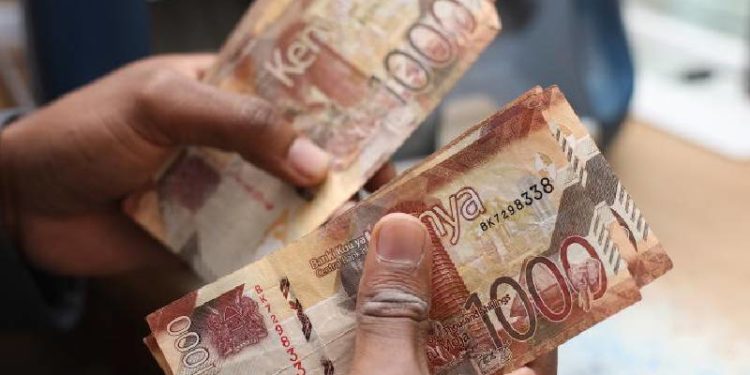The Kenyan shilling experienced its most significant dip in four months, reaching a record low of KES 152.80 against the dollar following Fitch Ratings’ statement that it may downgrade the nation’s credit rating depending on the portion of foreign reserves it uses to settle payments on a USD 2 billion Eurobond due in June 2024.
Fitch’s cautionary statement on Tuesday, November 7, 2023, highlighted the risk associated with using reserves to settle the Eurobond, which could decrease import cover and possibly trigger a downgrade. The move would have repercussions on the 2024 bond, a focal point for investors already wary of Kenya’s growing debt burden amidst escalating energy and food import bills.
In July, Fitch revised Kenya’s debt outlook to negative while maintaining its credit rating at B, classified as highly speculative. The 2024 bond has been under scrutiny due to concerns about the nation’s ability to manage its debt, especially given the strain on foreign-exchange reserves caused by rising debt service costs and import bills. At USD 6.8 billion, the reserves currently cover 3.7 months of imports. This precarious situation stems from a reluctance to explore refinancing in capital markets due to the prevailing high-interest rates.
Treasury Secretary Njuguna Ndung’u revealed in a recent interview with Bloomberg that Kenya is contemplating borrowing from multilateral and bilateral lenders to facilitate the Eurobond repayment. Talks are underway with entities such as the International Monetary Fund (IMF), World Bank, Trade and Development Bank, as well as bilateral lenders in China, including the Export-Import Bank of China and the China Development Bank. These Chinese institutions are significant holders of loans to Kenya.
The government’s ambitious target to secure KES 1.0 trillion, equivalent to 6.3 percent of gross domestic product (GDP), in foreign financing, including 467.0 billion KES in commercial financing, is raising eyebrows. Fitch suggests that this goal might be overly optimistic, estimating that Kenya could realistically secure around USD 4.0 billion in external funding. This assessment reflects the challenging economic environment and heightened scrutiny from international rating agencies.
The prospect of a credit rating downgrade has implications for Kenya’s broader economic stability. A weakened credit rating could increase borrowing costs and reduce investor confidence, potentially leading to a downward spiral for the shilling and an increase in bond yields. This environment of uncertainty requires the Kenyan government to carefully navigate its financing options, weighing the potential benefits of tapping into multiple funding sources against the risk of a credit downgrade.

















